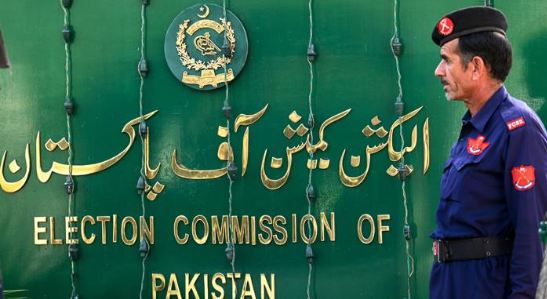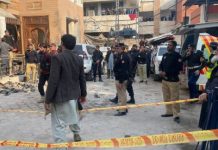ISLAMABAD, OCT 8 /DNA/ – The Election Commission of Pakistan (ECP) has finally announced that local government elections in Punjab will be held in the last week of December this year. The long-awaited decision has been welcomed across political and civic circles. Though delayed due to prolonged litigation and administrative hurdles, the announcement rekindles hope for a long-overdue revival of grassroots democracy in the country. The ECP’s move must be appreciated—better late than never.
Local government institutions are the foundation of a functional democracy. They bring governance closer to the people, empower citizens to influence decisions affecting their lives, and allow communities to hold public officials accountable. Unfortunately, successive political governments in Pakistan, irrespective of party affiliation, have shown little enthusiasm for devolving power. For decades, provincial and federal governments have treated local bodies as a threat rather than a necessity, fearing the loss of control over resources and influence.
The truth is that no democracy can truly flourish without an active local government system. National and provincial assemblies are too distant from the daily struggles of ordinary citizens. It is the union council, tehsil, and district level representatives who understand local issues — whether it be sanitation, education, water supply, or community health. A strong local government network not only improves service delivery but also strengthens national unity by ensuring that citizens feel heard and represented at every level.
The delay in holding these elections has been deeply frustrating. Punjab, the country’s largest province, has remained without elected local representatives for several years. The dissolution of the previous local bodies and subsequent legal challenges left a vacuum in community-level governance. During this period, development projects and public service delivery were managed through bureaucratic control, often leading to inefficiency and public discontent.
Now that the Election Commission has taken the initiative, it is imperative that the process remains free, fair, and transparent. All political parties must be provided a level playing field. The people of Punjab deserve a genuine democratic exercise where their vote can translate into visible change in their neighborhoods. The provincial government must cooperate with the ECP rather than create new hurdles or exploit administrative loopholes to delay the process further.
Equally important is the empowerment of the elected local bodies once they assume office. Merely holding elections is not enough; authority, funds, and autonomy must follow. Local councils should have the financial and administrative capacity to make independent decisions. Too often in Pakistan, local bodies have been reduced to symbolic institutions—without real power, resources, or relevance. The spirit of the Constitution, particularly Article 140-A, demands genuine devolution of power to the lowest tiers of governance. Provincial governments must honor this constitutional responsibility.
The example of Islamabad further exposes the reluctance of authorities to strengthen local governance. The federal capital has not seen properly functioning local bodies for years. The issue remains tied up in legal disputes and legislative changes designed to delay elections. Whenever the courts order polls, the federal government introduces new amendments to postpone them yet again. This cat-and-mouse game not only undermines the judiciary’s authority but also erodes public trust in the democratic process.
Such tactics are deeply regrettable. Delaying elections through legal or administrative maneuvers weakens democracy and signals an unwillingness to share power with the people. The right to elect local representatives should not depend on political convenience; it is a fundamental democratic obligation. The residents of Islamabad, like those in Punjab and elsewhere, deserve an opportunity to choose their local leadership freely.
These upcoming elections in Punjab are therefore more important than the general elections in many ways. While parliamentary polls shape national policies, local government elections directly affect citizens’ daily lives. They determine who will manage local schools, hospitals, waste management systems, and development budgets. They decide how effectively neighborhoods are governed and how responsive the state is to its citizens’ needs.
It is crucial that civil society, media, and voters themselves take a keen interest in this process. Voter education campaigns must highlight the importance of participation at the local level. Citizens should hold candidates accountable not for party slogans but for their commitment to community service and integrity. Political parties, on their part, must respect the outcome of the polls and refrain from interference or intimidation.
The Election Commission of Pakistan now shoulders a major responsibility. It must ensure that polling arrangements are transparent, security is maintained, and results are transmitted efficiently. Given the current political climate, any perception of manipulation could further polarize society and damage the fragile trust in electoral institutions.
The upcoming local bodies elections offer a rare opportunity to revive people’s faith in democratic governance. They can set a positive precedent not only for Punjab but for other provinces and regions, including Islamabad, where democratic devolution remains stalled.
Pakistan’s journey toward strong, participatory democracy will remain incomplete without vibrant, empowered, and accountable local governments. It is time for political parties to rise above narrow interests and embrace the true spirit of democracy — government of the people, by the people, and for the people — starting from the grassroots.
Better late than never, but this time, the process must not be derailed again.

















